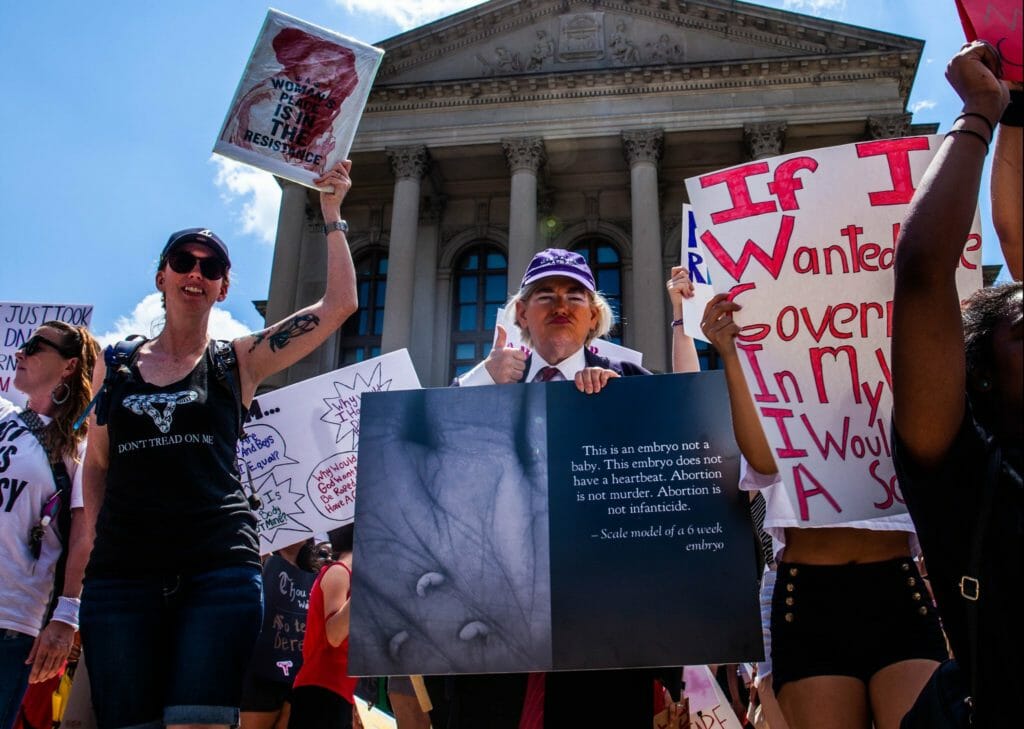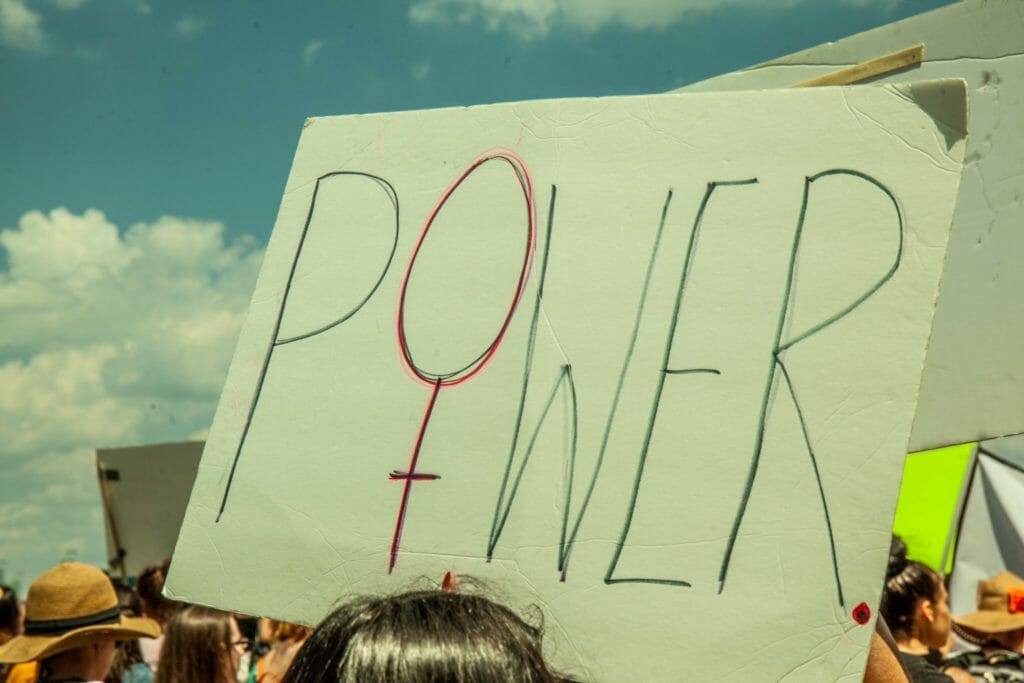How voting for school board members affects everyone even if they don’t have children

– Following the Equator, “Pudd\’nhead Wilson\’s New Calendar,” by Mark Twain
ATLANTA — As election season begins to pick up speed, it seems like a perfect time to remind everyone once again how important the whole ballot is. On Nov. 2, Atlanta voters will elect a mayor, city council, and the Atlanta Board of Education. After the countless voter restriction, anti-trans, and abortion ban bills popping up across the country in early 2021, the results of last year’s election have proven that the top of the ticket has fewer consequences than the bottom half. Local and state elections like the one coming up for Atlanta in November could have long-lasting and damaging effects not only on voting rights, but also on housing, policing, and education.
Education is a complex and partisan subject in this nation. Little red schoolhouses of the 19th and early 20th centuries have given way to school systems and districts of 100,000 or more students and tens of thousands of teachers. Over the years, more than 130,000 small districts have unified and combined into fewer and larger districts. However, the desire for local control by city, county, and state school boards instead of a nationalized system has not wavered. The lack of nationalization has also allowed school boards to vary in standard practices, policies, and achievement.
On the local level, most school board officials are elected to act as a bridge between schools and their communities and to determine educational policies implemented in schools and districts like graduation and assessment requirements, school lunch prices, partnerships with businesses, and dress codes. During COVID-19, those policies dictated school closings and reopenings, social distancing, mask mandates, distance learning platforms, and meal delivery. In addition to determining policy, school board officials oversee the daily operation of the district. They determine budgets for funding things like teacher salaries, textbooks, sports, and school police forces. School boards also dictate smaller details like whether or not vending machines are filled with healthy snacks, or how many windows are in each classroom, or what types of flooring can be used in elementary schools. Finally, they also decide whether or not hot button curriculum topics that deal with racial and gender discrimination in American History can be taught in some or all schools.
Though the school board is the final decision maker, it is ultimately the voters and continued community involvement that pushes each issue to the forefront. If a district built or renovated most of its schools in the late 1970s, we know historically those schools have greater chances of having lead paint or lead pipes. If community involvement is not high, there’s a possibility those schools will not be the first in line for testing or solutions, even when lead, asbestos or other harmful pathogens are known to be present in these facilities. School boards have the final say on which schools will or will not be condemned, rebuilt, renovated, or just patched up. It is also worth noting that Georgia does not currently require testing water for lead in schools or daycare facilities.
School boards are also tasked with setting property tax millage rates within their district. A millage rate is a tax rate used to calculate local property taxes, and represents the amount per every $1,000 of a property’s assessed value. Fulton County Schools currently have the lowest millage rates in metro Atlanta at 17.796, while Atlanta Public Schools and DeKalb County Schools’ rates were set at 20.74 and 23.080, respectively. Historically, rates in predominantly Black and lower-income neighborhoods have been taxed at higher rates. In his book Color of Law, Richard Rothstein points out multiple studies, cases, and policies that have allowed this process to carry on even today.

The Atlanta Board of Education (ABE) is the governing body of the Atlanta Public School System (APS). According to data compiled by VoteATL.org, ABE and APS currently work with an operating budget of about $853 million. That money comes from roughly 50% of property taxes and 11% of sales taxes collected; the other 50% of property taxes go to the city, county, and state. The remaining 89% of sales taxes collected go to the city, county, state, and MARTA. Those tax funds, as well as state, federal, and grant funds, all provide funds for school operations, salaries, and expenses.
Property values have also been tied to schools and school boards with the rise of school ratings by organizations like GreatSchools and achievement levels analysis by state departments of education. Those ratings are often reflections of student and teacher demographics, socioeconomic backgrounds, graduation rates, and achievement on state and national test scores. GreatSchools ratings can be found on multiple real estate websites. A 2019 study by Sharique Hasan and Anuj Kumar showed GreatSchools ratings guided homebuyers towards predominately white schools in affluent areas and aided in “accelerated divergence in housing values, income distributions, and education levels as well as the racial and ethnic composition across communities.”
According to Niche.com, the top 10 largest school districts in Georgia are all in metro Atlanta. Gwinnett and Cobb counties are the two largest, with Fulton County and Atlanta Public Schools being the fourth and sixth largest, respectively. Though they are all near each other, the districts, school boards, and their superintendents couldn’t be more different. Since their inception, metro Atlanta school boards have seen their share of controversy, lawsuits, and comebacks.
APS, ABE, and a list of superintendents have all had their share of controversial outcomes from segregation and integration in 1961 to the Criterion-Referenced Competency Test (CRCT) cheating scandal in 2009. Unlike the governor-appointed state board of education and superintendent, the ABE is made up of nine elected officials. Six are elected by voters from their specific geographical districts and three are elected to “at-large” positions.
All nine seats are up for election on Nov. 2, but a new law signed by Gov. Brian Kemp in 2020 will stagger term limits for each seat. The five board members who represent odd-numbered districts will run for two-year terms, while the four board members who represent even-numbered districts will run for four-year terms. This new format replaces the three at-large seats on two-year terms and the districts on four-year terms.

Cobb, Gwinnett, Fulton, Clayton, and DeKalb all follow the same staggered model. Officials say this model will help promote stability by not having large overhauls every four years.
All board members except Nancy Meister of District 4 will be running for re-election. Meister has held her post since 2009. Of the nine seats, five board members are currently running unopposed. Similar to City Council seats, certain elections often go unopposed and members remain in positions for multiple terms. The qualification period for candidates ends Aug. 21, 2021.
Metro Atlanta’s public schools, school systems, and their boards of education continue to disproportionately leave low-income students and students of color behind their white peers. Recently, APS agreed to pay $112,000 to New York-based nonprofit Leadership Academy for an equity audit, which is a large price tag to show that closing the gaps shown in the 2014 audit may not have closed enough. The coronavirus pandemic continues to affect students and teachers across the country, especially lower-income communities of color. Those impact will potentially harm whole communities, not just schools if decision-makers don’t use their positions of power to effect positive change.
While APS does not land in the headlines or news briefings very often, their governing body has a ripple effect that reaches all Atlantans, regardless of whether or not they have children or own property. The property tax rates these electors set not only affect homeowners, but those same costs are often passed on to renters, too. The choices in policies not only affect children in schools, but also the educators, staff, parents, and community members whose homes are in the district. While apps like GreatSchool are apparently designed for user convenience, like many other facets in Big Tech, they cause more damage as their ratings continue to segregate communities, undermine the work of educators, and create false narratives that are used to over police, overtax, and simply devalue the lives of community members. This means the burden of sustained attention and energy lies with Atlanta voters, once again, to set the tone for Atlanta policy for the next generation. With Atlanta’s mayoral race garnering national attention, it will be up to local voters to pay close attention to the rest of the ballot. While we are guaranteed political drama and theater in the media and between numerous candidates vying for the mayor’s office, the real decision-makers in the city council and school board need our utmost attention.




